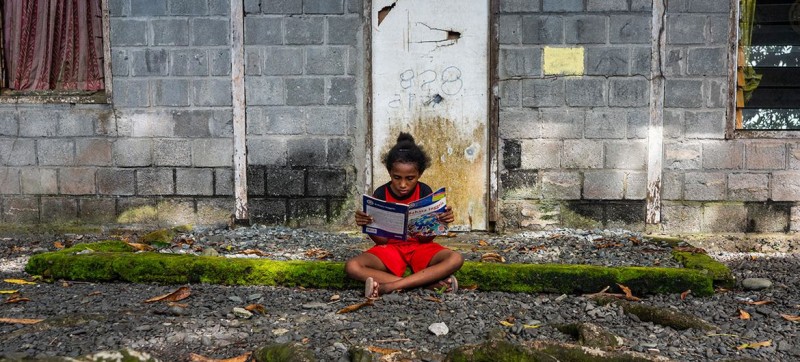A girl reads a book in front of her house in Papua, one of Indonesia’s poorest provinces. The UN Children’s Fund (UNICEF) on Tuesday launched an appeal for a record $9.4 billion as attacks against children continue to rise. Close to 24,000 grave violations against youngsters were confirmed last year, or 72 violations a day, according to the agency, in its largest ever appeal for funding. The appeal is 31 per cent larger than last year’s campaign, as humanitarian needs continue to grow globally, exacerbated by conflict, the climate crisis and now the COVID-19 pandemic.
“Millions of children around the world are suffering from the impacts of conflict, extreme weather events and the climate crisis,” said UNICEF Executive Director Henrietta Fore.
As always, it is the children already living through crises who are the hardest hit. They need urgent help.https://t.co/yGm6UMw5Nf
— Henrietta H. Fore (@unicefchief) December 7, 2021
‘Urgent help’
“As the COVID-19 pandemic approaches its third year, the plight of these children is made even worse with faltering economies, growing poverty and rising inequality. As always, it is the children already living through crises who are the hardest hit. They need urgent help,” she said.
As the pandemic continues to set back the education, health, nutrition and well-being of children around the globe, providing the tools to bring it under control requires urgent support.
$933 million of appeal funds will be allocated to accelerate the development, production and equitable access to COVID-19 tests, treatments and vaccines.
Climate change is worsening the scale and intensity of emergencies according to the reports, as the agency reported that the number of climate-related disasters had tripled in the last 30 years. Over 400 million children live in areas of high, or extremely high, water vulnerability, it said.
Afghanistan focus
The appeal includes $2 billion for UNICEF’s response in Afghanistan in the agency’s largest ever single-country appeal, where 13 million children need urgent humanitarian assistance.
These include one million children facing severe acute malnutrition, living with national health systems on the brink of collapse, according to the agency’s statement.
UNICEF will also allocate funds for Syria, Yemen, the Democratic Republic of Congo, and in Ethiopia, where brutal fighting has displaced hundreds of thousands of children.
The funds appealed for by the agency will support essential programs for over 177 million children in need across 145 countries and territories through 2022.
Global Forum for Children and Youth
On its 75th anniversary, UNICEF is also teaming up on Tuesday, with the governments of Botswana and Sweden to host the Global Forum for Children and Youth bringing together leaders, experts, change makers and influencers, along with children and youth.
In a three-day programme with more than 40 sessions and 100 top speakers, it will focus on priority themes such as climate, mental health, education, poverty and protection from violence.




Comments are closed.